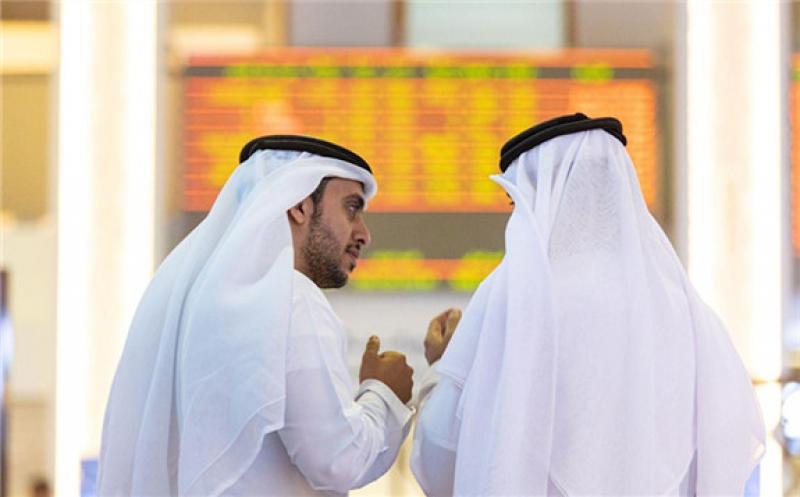The UAE and South Korea are looking to strengthen their economic partnership and create more opportunities for business growth in priority sectors in an effort to boost trade.

The two countries also agreed to resume negotiations on a multilateral trade agreement within the framework of the GCC following an online meeting between Thani Al Zeyoudi, UAE’s minister of state for foreign trade and Yeo Han-koo, South Korea's trade minister, state news agency Wam said.
"The Emirati-Korean relations have made a qualitative leap in a number of vital sectors recently and we will work over the coming period to propel our bilateral co-operation by increasing mutual visits to serve our common interest,” Mr Al Zeyoudi, said.
The UAE is South Korea's top Arab trading partner, accounting for about 27 per cent of its total trade with other Arab countries. In the first half of 2021, non-oil trade between the two countries grew to Dh8 billion ($2.17bn) while the UAE exports to South Korea rose 55 per cent annually to exceed Dh300 million. The volume of non-oil trade between the two countries amounted to about Dh4.9bn in 2020.
The UAE's investments in South Korea reached Dh200m in 2020 while South Korea's direct investments in the Emirates amounted to about Dh2bn by the end of 2019.
South Korea and the UAE are also working to exchange knowledge and expertise in the fields of energy, particularly in renewable energy, Mr Han-koo said.
A multilateral trade agreement will help in establishing sustainable economic relations and address changes in the global supply chain to support economic recovery during the post-Covid-19 phase, he added.
The UAE is seeking inward foreign investment worth Dh550bn over the next nine years and it aims to be among the 10 biggest global investment destinations by 2030, Minister of Economy Abdulla bin Touq said last week.
The Arab world’s second-largest economy will attract investments from countries including Russia, Australia, China and the UK, the minister said. South Korea is among the countries the UAE is aiming to court in a bid to boost trade.
The UAE and South Korea share significant “synergies to provide further impetus to the existing relationship spanning across multiple sectors including energy, investments, tourism, and the knowledge sector”, said Ullas Rao, assistant professor of finance at Heriot-Watt University Dubai.
Last month, Mubadala Investment Company, Abu Dhabi’s sovereign investment arm, and a group of other investors bought a 46.9 per cent stake in South Korean Botox maker Hugel.
South Korea's NH Investment & Securities is also investing in Abu Dhabi’s natural gas pipelines infrastructure along with other companies. Last year, NH Investment & Securities joined a consortium of the world’s leading infrastructure and sovereign wealth funds to sign an agreement worth $20.7bn to invest in Abu Dhabi National Oil Company's lucrative midstream assets.
Adnoc also signed an agreement with South Korea's GS Energy this year to explore opportunities to grow the UAE's hydrogen economy and carrier fuel export position.
GS Energy, which operates an onshore concession in Abu Dhabi, has shown interest in Adnoc's planned increase in the production of blue hydrogen.
In 2019, Adnoc awarded South Korea’s SK Engineering & Construction a Dh4.4bn contract to build the world's largest single-site underground crude storage facility in Fujairah.
Electric Power Corporation is also involved in building the UAE’s first nuclear power plant in Al Dhafra region of Abu Dhabi.
“There is a successful and strong trade relationship between the two countries in the energy sector and this is expected to expand to other sectors as ties strengthen … especially in start-ups and medical devices and services sector,” Changhoe Han, president and executive managing director of Dubai-based Korea International Trade Association, told The National.
Expo 2020 as well as new initiatives announced as part of the 'Projects of the 50 plan' will have a "positive impact" in boosting trade and investment between the two countries, he added.
There are also numerous opportunities for South Korean businesses to tap into an expected surge in IPOs in the UAE as state holding companies divest their stakes to boost liquidity in the capital markets, Mr Rao said.
Kospi, the main benchmark index of South Korea, also "holds enormous potential for sovereign funds in the UAE to explore more opportunities as part of the vision to diversify the economy", he added.